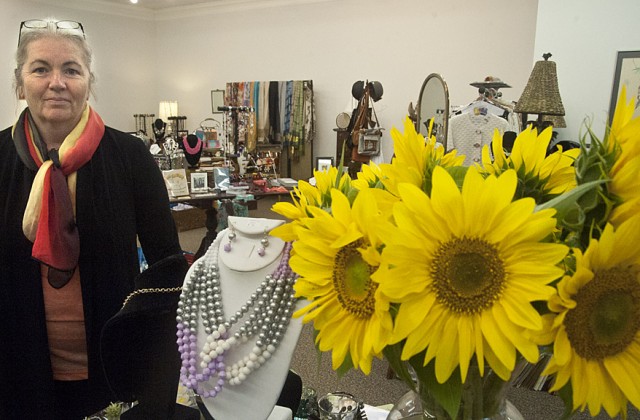Engaging the Paradox: The Secret Corner Should Not be a Secret
Local businesses work to raise visibility
By Christopher Sinclair
While the verdant, ambling hills of the southern Berkshires, rife with clear streams and winding trails, receive the lion’s share of attention from people passing through or visiting, some individuals in the northwest corner are working to bring attention back to a somewhat neglected facet of Berkshire living: the local economy.
The Northwestern Connecticut Regional Planning Collaborative has developed a marketing campaign titled The Secret Corner, the aim of which is to bring attention to existing local businesses, attract new business ventures, and generally inject a bit of life into the economies of eight towns in the Northwest corner, Norfolk among them.
Jocelyn Ayer, director of the NWCT Regional Planning Collaborative, says that economic initiatives such as The Secret Corner are imperative due to the fact that “many of our small towns lack the resources to market themselves individually and lack the critical mass of businesses to attract visitors” from New York City and elsewhere.
Although it is difficult for individual towns to devote a sufficient volume of resources and energy to marketing, Ayer asserts that “together we can market ourselves effectively and cost efficiently.” Ayer and her partners at the collaborative would like to “help attract businesses to vacant storefronts” around the northwest corner, some of which, for the time being, are in Norfolk, but says the collaborative is “primarily focused on promoting existing businesses and helping them grow.”
Although the local economy in The Secret Corner may have momentarily slipped into the doldrums, Ayer sees “many opportunities for a more robust local economy in this region’s future.” She goes on to say that “regional residents are starting to understand the importance of buying local and eating local.”
Norfolk’s own Bella Erder, proprietor of Aija, agrees, characterizing the support of locals as “vital.” Erder has been engaging the paradox of spreading the word about The Secret Corner, and is working alongside Ayer and others to advance and grow local businesses. Erder, continuing her discussion of the importance of local support, says that she is “keen to diversify what we offer at Aija to ensure we are meeting the needs of local residents.” She cites Facebook as a potential free marketing tool and vehicle through which local business owners can learn about the wants and needs of their customers.
Regarding the difficulties potential business owners in Norfolk might face, “One of the greatest hindrances I can foresee for attracting new retail and restaurant businesses is foot traffic,” Erder says, “there is precious little.”
Reiterating her earlier point, she posited that “if the town center is to remain it must be supported by locals.” This is particularly true outside of the period bookended by May and September, when the town’s population decreases rather significantly and the wintry charm of The Icebox ensures that only the heartiest of visitors will be trekking by.
Erder hopes that through joint and collaborative efforts local businesses will continue along into the so-called offseason without a marked decline in customers and business.
Those who have lived in Norfolk or in the northwest corner for a considerable length of time are fiercely proud of the town, working to maintain the beauty of Norfolk and participating in many volunteer activities. Erder and other members of the collaborative challenge the townspeople of the northwest corner to add the all-important job of supporting local business to the list of unofficial duties to which they feel compelled to attend.
Photo of Aija owner Bella Erder by Bruce Frisch.

